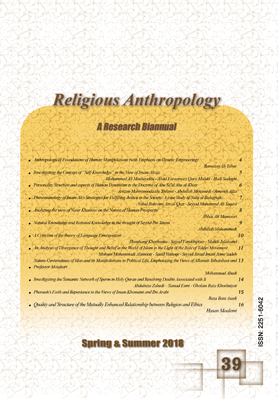Phenomenology of Imam Ali’s Strategies for Fulfilling Justice in the Society: A case Study of Nahj al-Balaghah
Document Type : Research Paper
Authors
1 PhD Candidate of Politics, Ferdowsi University
2 Associate Professor of Politics, Ferdowsi University
10.22034/ra.2018.32745
Abstract
Justice is an ideal concept and an end in politics. Extracting this concept out of abstraction and realizing it in objective, social and political reality requires method. In his writings to his assistants and his political authorities Imam Ali draws the practical and executive methods of fulfilling justice. In the current research, which is a case study of Nahj al-Balaghah, the content analysis of documents through phenomenology is employed to investigate and evaluate the thought of Imam Ali on Justice. Besides, the theoretical framework of this research is adopted from those of Heidegger, Foucault and Giorgio Agamben that are used for analyzing the position of ethics in written Islamic sermons. The research has resulted in four strategic principle extracted from Nahj al-Balaghah which are a) the principle of meritocracy, b) the principle of fairness (equity), c) the principle of entitlement and rejection of discrimination and d) the principle of moderation.
Keywords
